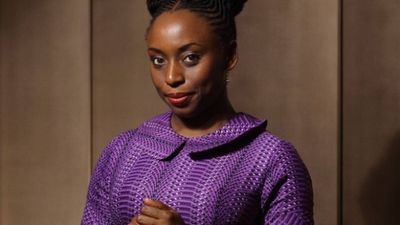Chimamanda Ngozi Adichie Continues to Defend Her Comments on Trans Women During D.C. Appearance
Chimamanda Ngozi Adichie defended her statements about trans women during an appearance in Washington D.C. yesterday.
Chimamanda Ngozi Adichie, faced backlash last week over comments she made about transgender women. Many believed that her views minimized their experiences by implying that trans women aren't "real women." Following the outcry, Adichie took to Facebook twice to clarify her remarks.
The debate didn't end there, however. Yesterday, Adichie spoke on the matter once again during an event for her latest book, Dear Ijeawele, Or A Feminist Manifesto In Fifteen Suggestions, in Washington D.C., reports The Guardian.
“From the very beginning, I think it’s been quite clear that there’s no way I could possibly say that trans women are not women," she said. "It’s the sort of thing to me that’s obvious, so I start from that obvious premise. Of course they are women but in talking about feminism and gender and all of that, it’s important for us to acknowledge the differences in experence of gender. That’s really what my point is.”
Adichie stood by her original statement, pointing to what she believes is the uncomprimisingly rigid use of certain terminology by the American left. She also made it clear that she in no way felt compelled to apologize for her remarks.
“I didn’t apologize because I don’t think I have anything to apologize for. What’s interesting to me is this is in many ways about language and I think it also illustrates the less pleasant aspects of the American left, that there sometimes is a kind of language orthodoxy that you’re supposed to participate in, and when you don’t there’s a kind of backlash that gets very personal and very hostile and very closed to debate."
During a question and answer session, Adichie was asked to share her thoughts on intersectionality.
“Speaking of language, even the word ‘intersectionality’ comes from a certain kind of academic discourse that sometimes I don’t know what it means," she responded.
For Adichie, the word "feminism," in and of itself, is far less ambiguous. “I think the history of Western feminism is one that is fraught with racism, and I think it’s important to acknowledge that, and at the same time to say that feminism is not the western invention, that my great-grandmother in what is now South-Western Nigeria is a feminist."
